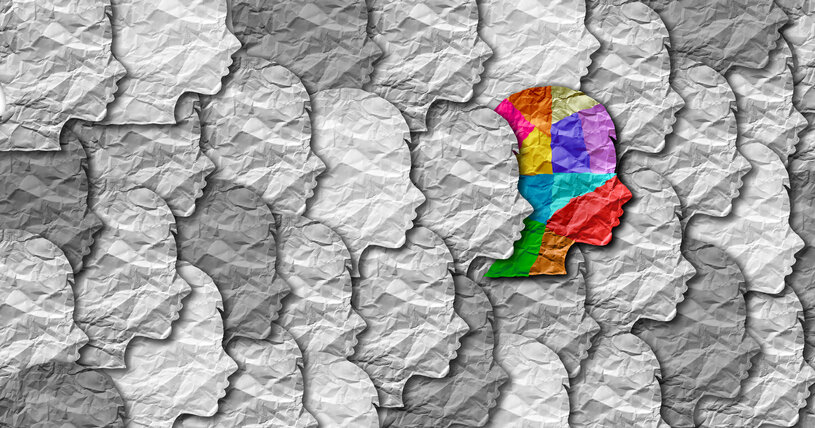What do we mean by neurodiverse people? A concept that is increasingly heard and used. In general, it refers to people diagnosed with autism, Asperger’s, attention deficit hyperactivity disorder, dyslexia, and Tourette’s syndrome, among other conditions.
By Andrea Zondek Darmstadter
What is important is that by using the term neurodivergent we focus attention on the differences in neurology rather than seeing these deficits as a disorder in need of treatment. It positions it as an opportunity and a contribution from a different look, not excluding but complementary.
Some figures that attract our attention show that the incidence of autism spectrum disorder (ASD) in the general population is 1 in 59 people. That is about 130 million people in the world. According to the EU, 80% of them are unemployed. These figures only refer to people with ASD and not to the whole group of neurodivergent people.
Having said this, and necessary to measure the situation that millions of neurodivergent people live in the world, regarding access to decent and quality employment, is that we want to highlight interesting experiences that occur in other parts of the world and that of course we can imitate in Chile.
Thus, companies such as Ernst & Young, SAP, Microsoft and Ford are hiring people with neurodiversity. The secret…? To look for the competencies in people and not to focus on their deficits. The philosophy is that work is better when you mix people who think differently.
Historically, both companies and organisations recruiting people for the company have looked for candidates who are “the same” who have no differences and who fit the “work environment” that exists in each organisation. It seemed to be easier to deal with equals than to respect differences than to permanently adjust discussion and orientation. Ultimately, new talent had to “fit in” and not disrupt the work environment.
Today, however, fortunately, that view is beginning to change. Rob Austin (Ivey Business School, University of Western Ontario, Canada) points out that: “the parts of ourselves that we don’t share are often the most likely sources of new thinking and innovation”.
Interested in accompanying neurodiverse people, at Fundación TACAL we have begun to accompany companies in their search for diverse talent, which was previously not valued for being different. Today, innovation development companies, IT companies and other research companies value different contributions. But how do we manage to lower prejudices so that companies can bring about the change they need to bring about?
To do this, we not only accompany the Human Resources Departments of companies in the process of selecting the talent they require, but we also work to bring about the cultural changes that are so necessary in its interior so that the person who enters the company is valued and respected in his or her difference and diversity. As we were told by a person with ASD, that we included in a large development company in our country, “surviving the experience of a selection interview is a challenge for us”. That is why we developed this area of HR support for companies, so that talent can be included and be part of the development.
Sometimes the adjustments we have to make are simple and do not require major changes, but sometimes they are more important. Without these changes, without the culture of inclusion, the incorporation, the full contribution that the new worker can make, will be limited by factors that are not linked to their skills and competencies, but rather to the limitations that the environment places on them.
Chile is changing, and in this ambit for the better. More and more companies are seeking our support to incorporate neurodivergent people and receive important and necessary contributions from everyone. And, in the company where you work, do they think ” outside the box “?
Andrea Zondek Darmstadter, President TACAL Foundation






